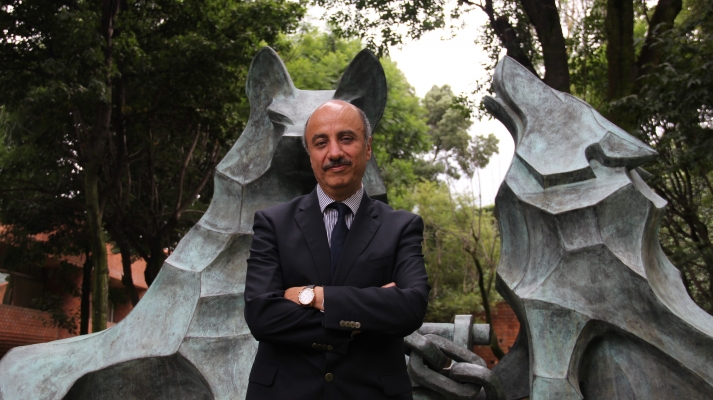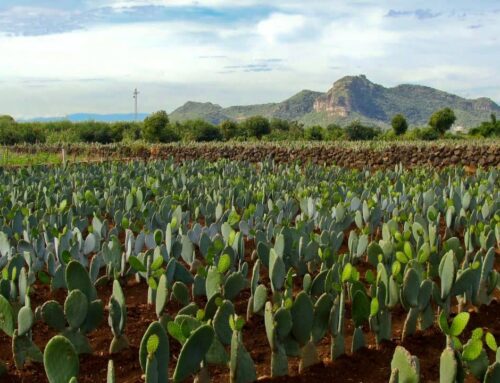
Dr. Armando Tovar Palacio, academic of the Bachelor of Nutrition and Food Science of the Universidad Iberoamericana, received the National Prize in Science and Technology for research that showed that cactus has beneficial effects on health, by improving the microbiota and intestinal permeability, especially in people prone to develop diabetes.
The researcher won the first place in the category ‘Professional in Food Research and its Impact on Nutrition’, awarded by the National Council of Science and Technology (Conacyt), with its study ‘Nopal (Opuntia ficus indica) protects from metabolic endotoxemia modifying the microbiota in rats fed a diet high in fat and sucrose ‘.
In an interview with C + IBERO, Dr. Tovar explained that for the last 10 years, the issue of bacteria in the intestine has become relevant, since they were associated with the development of chronic diseases, such as those related to obesity. Therefore, the work he did together with his wife, Dr. Nimbe Torres, showed that eating the cactus changes the intestinal microbiota in a way beneficial to health.
Tovar Palacio, who teaches Metabolic Biochemical Matter at IBERO, explained that the gut microbiota must be impermeable, that is, it does not allow the passage of liquids. But obesity, for example, causes a change of bacteria and breaks with that quality. However, cactus consumption corrects the microbiota and helps the intestinal membrane does not become permeable and retains its natural state.
He noted that the development of metabolic disorders such as insulin resistance, which occurs in people with obesity, is related to the existence of substances known as lipopolysaccharides which are emitted by certain bacteria that are present in the intestine and that pass to the circulation due to a permeable intestinal microbiota. He explained that if this lasts, you can develop type two diabetes or cardiovascular diseases.
“The fact that a food such as cactus has the ability to improve the microbiota and intestinal permeability, as well as prevent this type of substances from passing, will have beneficial effects as we have shown in the studies we have done,” Tovar said.
He explained that those who are obese usually develop dysbiosis, which leads to metabolic alterations in people, but foods such as cactus help to avoid this imbalance of the intestinal microflora to return to an adjustment of the bacteria.
The researcher recommended to the Mexican population the incorporation of cactus in the diet. College students, for example, who include this food will maintain a desirable metabolic profile and be further away from health complications. Although he confessed that they are not exempt from metabolic problems, they could delay these alterations and, in that case, they could be more moderate.
The development of this research took three and a half years to the researcher of the National Institute of Medical Sciences and Nutrition Salvador Zubirán, where he has developed the research areas of nutrigenomics and nutrigenetics, that is, the study of how the nutrients of the diet regulate the expression of genes.
“To determine the intestinal microbiota, one of the key points, is a technology that in Mexico is little the people who do it. We have had to be pioneers of this technology in Mexico in a total way because of the few studies that had been done had to be done is a massive DNA sequencing, “said Tovar.
The researchers chose the nopal to carry out the research because it has a high fiber content for which they thought it was the main cause of its benefits, but they discovered that it has many other molecules that have a significant beneficial effect.
Valentina González / ICM
Vía Ibero






Leave A Comment